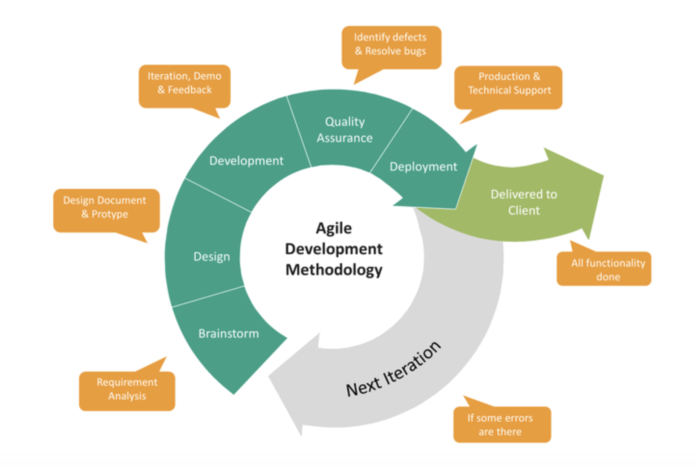Developing a website for eCommerce is a critical part of many modern businesses. Customers have little patience for poorly-designed websites, and they will search for other options if a site is too difficult to navigate. Using an Agile eCommerce process can help businesses do web development that responds to customer needs.
What is an Agile process?
The Agile process began as a method for developing computer software. Traditional methods of software development were based on old, linear processes. A client came with a project. The programming team worked until they had a finished product. The client was rarely involved in the development itself. This could cause a great deal of frustration if the client’s needs changed during the development period.
In an Agile process, the development team breaks the project down into pieces. Team members receive tasks that they work on for a given period. The job of the project manager is to measure progress and coordinate implementation. Importantly, the client also reviews this progress and can give input throughout the process. When the finished project arrives, it is much more likely to meet the current needs of the client. This is because, according to Contentful, “retailers love being able to deliver relevant, localized, context-aware content using existing publishing and approval workflows that make sense for their business.”
Agile has expanded beyond the world of software development and into general project management. An Agile eCommerce process can be a great way to get your online business site up and running. The nature of this process lends itself to the frequently changing needs of the online world.
Advantages of Agile Ecommerce
Enhanced Collaboration
Maintaining an eCommerce site requires several teams to work together. Your web developers have to communicate with your marketing team and your product development experts. The Agile process requires regular progress meetings that give team members an opportunity to coordinate their work. Knowing the web development stage will affect the goals of the marketing team. Knowing that the business is about to release a new product will change the focus for the web development team.
Smoother Response to Change
The online world is marked by constant change. New technologies emerge on the landscape at the same time that companies update familiar platforms. An Agile approach to eCommerce assumes that there will be changes along the way. The final product may be quite different from how it was imagined at the start.
A Flexible Process
In the Agile software development world, teams often work in two-week sprints to meet their project goals. By using this kind of limited time frame, the whole process becomes more flexible. It is easier to respond to emerging needs when you have not invested months on a piece of the project.
Faster Rollout
A big advantage of Agile eCommerce is the goal of getting some form of the project online quickly. In the Agile worldview, it is assumed that this is not the finished project. Instead, the business will look for user feedback about what works and what needs to be improved. This feedback turns into the goal list for the next sprint session.
Agile processes provide a powerful framework for businesses to develop new projects in the internet age. It acknowledges the reality of constant online change and views eCommerce web development as a work that is always in progress.






















